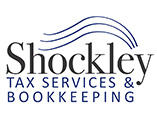When you’re a small business owner, you’re juggling dozens of responsibilities. Bookkeeping may be one of the last things on your mind. You don’t have the massive lists of daily income and expenses that larger businesses do, so it’s easy to fall into a false sense of security about your accounting practices.
Also, you probably don’t want to hire a bookkeeper if you don’t absolutely need one. If you’re just getting your business started, you can’t afford to hire an entire team of people you may or may not need. So why would a business need a bookkeeper in the first place?
What Is a Bookkeeper?
First, you need to understand that a bookkeeper is not the same thing as a traditional accountant. Bookkeeping responsibilities include:
- Maintaining the general ledger. A bookkeeper’s biggest responsibility is arguably to keep tabs on the general ledger, which tracks income and expenses across various areas of the operation.
- Creating invoices. Bookkeepers also traditionally take charge of creating invoices and managing the billing process, including following up with customers who are late with payment.
- Balancing subsidiaries. Subsidiary ledgers are designed to provide more in-depth detail about certain categories of transactions, such as applicable customer discounts or labor expenses, and a bookkeeper keeps them updated.
- Completing payroll. If you’re paying anyone for any work they’re doing for your business, you need to have a consistent payroll system … or your workers won’t get paid correctly, or on time. Bookkeepers traditionally handle the payroll.
Accountants, by contrast, often prepare financial statements, analyze operating expenses, prepare taxes, and participated in making long-term financial and planning decisions.
When and Why to Hire a Bookkeeper
Does your business actually need a bookkeeper?
Every small business needs someone who takes charge of tracking financial transactions, for obvious reasons. Without a general ledger, you won’t have insight into your profitability; without a consistent invoicing process, your cash flow will suffer; and of course, without payroll, your employees would quit.
Theoretically, you should be able to handle most of these responsibilities yourself — at least in the early stages of your firm’s growth. But you may need to hire a bookkeeper for the following reasons, should they apply:
- You need additional help for day-to-day operations. You’re the entrepreneur of a small business, which means you’re pulled in dozens of directions every day. You may be able to handle everything when your business is just getting started, but soon, you could feel bogged down by the minutiae associated with financial tracking. As the leader of the business, your time is better spent coming up with new strategic directions, executing major decisions, building the team, and expanding the business, so eventually, you’ll need a designated team member or partner to take over here.
- Your invoice processing needs to be more consistent. Invoicing is one of the most significant contributing factors to your company’s cash flow. If you submit your invoices consistently, in a standard process, on time, and in a convenient format, you’ll get more on-time payments. Without a standard process, it’s too easy for your revenue stream to collapse. Plus, if a customer misses a payment and you’re not there to follow up, you could wind up with a cash shortage – which can be especially dire in the early days of your business. If you notice problems with your invoicing system, you should hire a bookkeeper at least part-time to help you regain control.
- You’re having trouble managing payroll. Payroll is another critical function you have to stay on top of. If you’re working closely with team members, you may be able to buy an extra day or two to send a missed paycheck or correct an error, but it doesn’t take many mistakes to damage team morale severely. You can’t afford to let your payroll issues get any worse, so you’ll need to bring in a bookkeeper to establish and maintain control.
- Your bills aren’t getting paid. This is another obviously critical issue. You have to pay for utilities, services, and vendors on a regular basis. If you miss a payment, you could jeopardize a working relationship, and even close off a major source of revenue if your timing is bad enough. In most cases, a missed payment is an easy fix — an over-the-phone late payment or something similar — but it could well be the symptom of a larger problem. You need someone to watch for these and keep your payments flowing on time.
- Your finances are getting more complex. Most successful small businesses don’t stay small for long. You’ll attract more customers, invest in more resources, and build out your infrastructure. Accordingly, your finances are going to get considerably more complex, and eventually, you won’t be able to handle them alone. When things start getting over your head, bring in a professional bookkeeper to pick up the slack.
Part-Time, Full-Time, or Outsourced?
If it appears you do indeed require a bookkeeper to help you balance your responsibilities, the next question is somewhat trickier: Do you need part-time help, full-time support, or the assistance of a small business bookkeeping service provider?
There are pros and cons to each option, and the answer will depend on your firm’s needs. For example, you should be able to answer the part-time vs. full-time question fairly easily, based on the volume of work you have. Most small businesses need fewer than 40 hours of work per week to handle financial duties.
As for the in-house vs. outsourced solution, this depends more on your personal preference. Hiring a part-timer as a regular part of your team may give you more control over that person’s activities; depending on whom you hire, this may even cost you less.
However, most professional bookkeeping services offer more experience and working knowledge of bookkeeping and accounting, which means they’ll be more reliable, and likely a better all-around investment.
If you know you need some bookkeeping assistance, Shockley Books is a good place to start: We’re flexible and offer a range of bookkeeping services that should meet almost any small business owner’s needs. We’re currently offering free payroll setup services for our first-time customers, so contact us to get started![/vc_column_text][/vc_column][/vc_row][vc_row][vc_column][vc_message message_box_color=”grey”]
Need help deciding on a bookkeeping service?
Our Ultimate Guide for Small Business Bookkeeping can help you find answers.[/vc_message][/vc_column][/vc_row]

